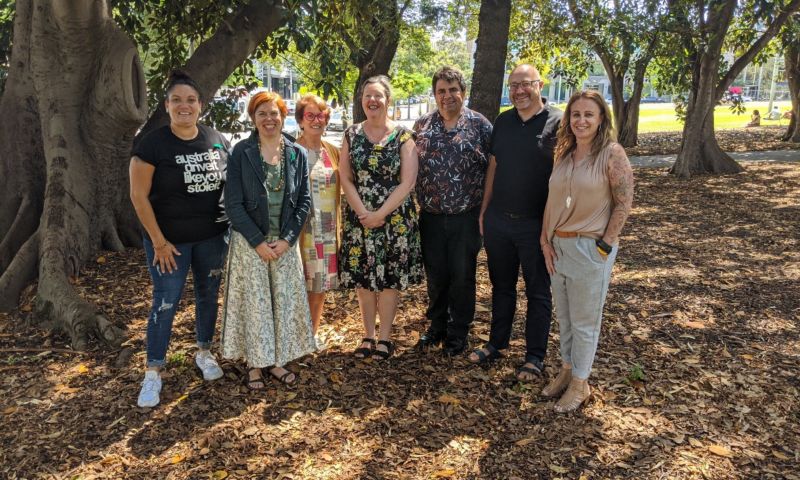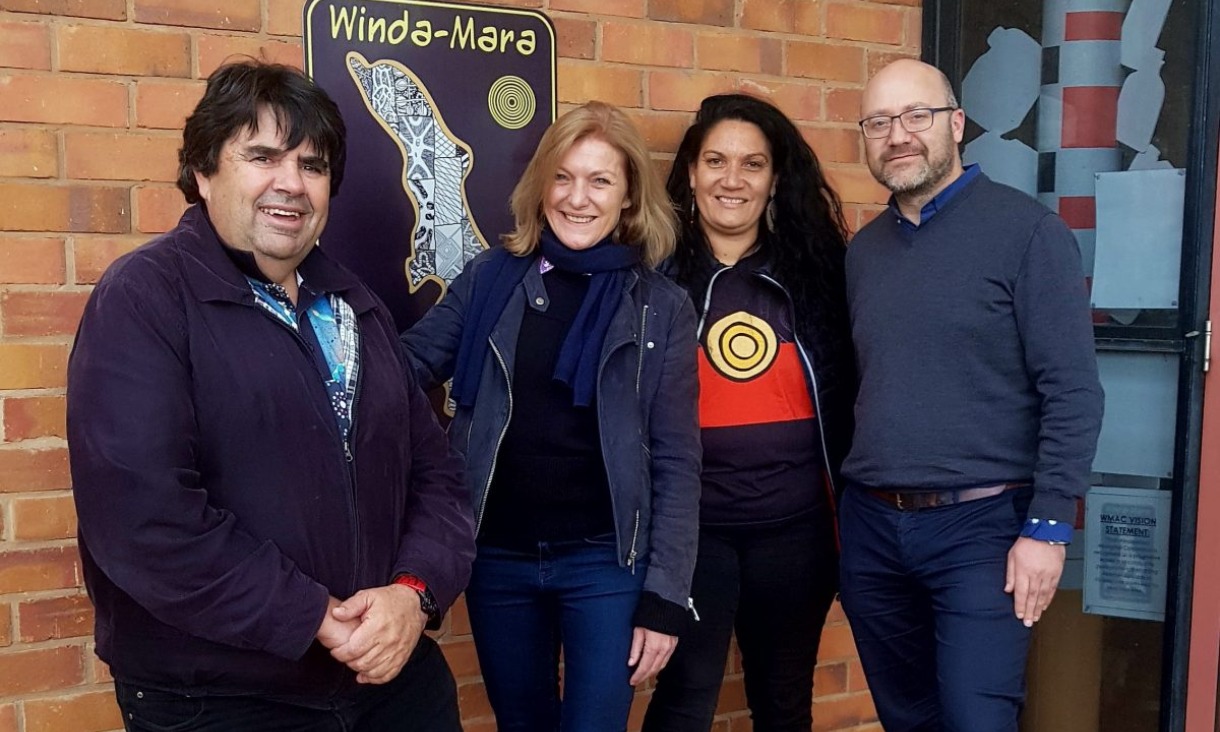
Removing barriers to Aboriginal employment
RMIT researchers have partnered with Aboriginal organisations on a new project to tackle barriers to employment for Aboriginal people.
Building on earlier successful work addressing this issue, the Rethinking Criminal Records project will educate employers and job seekers about their rights and obligations in disclosing criminal history.
The project has been given $300,000 by the Victorian Legal Services Board to enable project partners to work with Aboriginal job seekers in regional communities and across the state once COVID-19 restrictions lift.
Aboriginal communities have long reported the serious barrier to employment posed by employers’ use of criminal record checks, irrespective of the relevance of the criminal history.
In Victoria, Aboriginal unemployment is up to three times higher than that of the general population, while two in three Aboriginal Victorians who have been incarcerated have dropped out of the labour force.
The team, including Associate Director of RMIT’s Centre for Innovative Justice (CIJ) Stan Winford, the Graduate School of Business and Law’s, Professor Bronwyn Naylor, and the School of Global, Urban and Social Studies’, Associate Professor Georgina Heydon, are collaborating on the project with Woor-Dungin and other Aboriginal organisations.
Winford said the project would provide practical resources for organisations wanting to hire Aboriginal people, as well as those with a criminal history looking for work.

“The figures around Aboriginal unemployment and labour force participation are really shocking,” Winford said.
“For those with a criminal record, it’s a double disadvantage – not only might they face discrimination from potential employers, it can also discourage job seekers from applying for a job in the first place, in anticipation that they won’t get the position because of their criminal history.”
Naylor pointed out that there were many employers who wanted to do the right thing, but weren’t sure how.
“They may want to give people a second chance, and they may be trying to increase the diversity of their workforce, but then run into obstacles,” Naylor said.
“For example, guidelines in government grants, or restrictions from insurance companies, can deter people from hiring those with criminal records even if the records are not relevant to the role.”
Criminal record checks have also been shown to limit other opportunities for Aboriginal Victorians to contribute to their communities, such as by becoming kinship carers or youth mentors.
In 2018, the team was recognised with an Australian Philanthropy Award for its Criminal Record Discrimination Project, which successfully achieved the expungement of criminal records for members of the Stolen Generation in Victoria.
This latest project builds on the team’s four-year campaign to advocate for legislation regulating the disclosure of old and irrelevant criminal history in Victoria. The Victorian Government announced its intention to establish a spent convictions scheme in February 2020, which will make Victoria the last Australian jurisdiction to do so.
 L-R: Winda-Mara's Michael Bell, Reason Party MP Fiona Patten, Woor-Dungin's Naomi Murphy and CIJ's Stan Winford
L-R: Winda-Mara's Michael Bell, Reason Party MP Fiona Patten, Woor-Dungin's Naomi Murphy and CIJ's Stan Winford
Proud Wakka Wakka woman and member of the team, Naomi Murphy, said that despite the plan for a new spent convictions scheme in Victoria there was still a critical need to continue to raise awareness of the issue.
“There are certain sectors where it often comes up as a real issue,” Murphy said.
“One example is in aged care, where there’s a generation of Indigenous elders who need culturally appropriate care.
“The rules around hiring people to work in that field are quite tough and tight because of risk - yet it may be possible to hire someone with a record.
“So how do you ensure that aged care operators, particularly those who want to provide a culturally appropriate service, know what to do?
“In many cases, communication to job seekers could also be improved - many government departments in their job advertisements stipulate that applicants must declare if they’ve got a criminal history,” Murphy said.
“The way that message gets back to the Koori community is “these people won’t give you a go, so don’t bother”, so no one applies.”
The project will be looking to engage government departments and organisations struggling to meet Indigenous recruitment targets.
In addition, the it will engage those with Indigenous employment policies built into their Reconciliation Action plans and Aboriginal community organisations grappling with record checking obligations.
It will identify employers who are using best practice approaches to Indigenous employment, and to employing people with a criminal record that is not relevant to their job.
Importantly, the project will establish a virtual employment hub to link Aboriginal job seekers with prospective employers.
The team also plans to hold a series of workshops in regional communities, once COVID-19 restrictions have eased.
Story: Claire Slattery and Diana Robertson
- Research
- Social services
- Legal & justice
- Indigenous Australia
Related News


Acknowledgement of Country
RMIT University acknowledges the people of the Woi wurrung and Boon wurrung language groups of the eastern Kulin Nation on whose unceded lands we conduct the business of the University. RMIT University respectfully acknowledges their Ancestors and Elders, past and present. RMIT also acknowledges the Traditional Custodians and their Ancestors of the lands and waters across Australia where we conduct our business - Artwork 'Sentient' by Hollie Johnson, Gunaikurnai and Monero Ngarigo.
More information